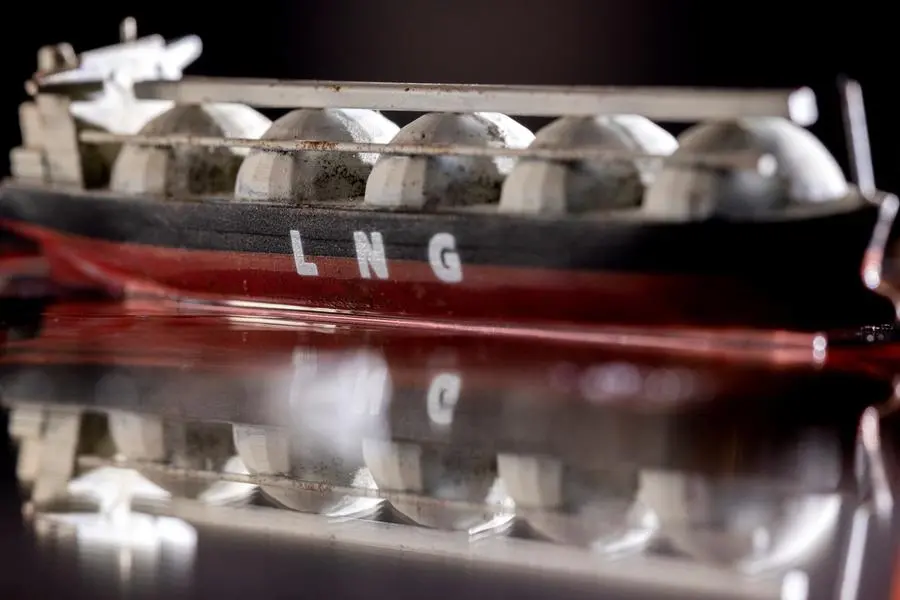PHOTO
LONDON - Asian spot liquefied natural gas (LNG) prices remained at their lowest level in over four months this week on strong inventories, mild weather and weak demand which are all bearish factors that are seen continuing into 2024.
The average LNG price for February delivery into north-east Asia fell slightly to $11.70 per million British thermal units (mmBtu) from $11.90 last week, remaining at its lowest level since August 13, industry sources estimated.
The price has fallen 58% this year as demand remained muted most of the year in both Asia and Europe.
"The global gas market remains reasonably comfortable, with high gas storage levels in Europe and the return of Australia’s Prelude plant to loadings, offering some additional supply," said Alex Froley, senior LNG analyst at data intelligence firm ICIS.
"Even if the weather turns colder in the coming weeks, serious security of supply problems seem unlikely given the stock levels available for the second half of winter," he added.
In north-east Asia, mild weather across most of the region after a recent cold snap is limiting demand for additional spot purchases, particularly in South Korea, which is set to see a prolonged period of above-average temperatures, said Samuel Good, head of LNG pricing at commodity pricing agency Argus.
Good added that the outlook for Australian exports also looks strong, with maintenance schedules suggesting that downtime during January next year will be less than half that of the same month in 2023, and the Prelude facility also restarting exports, though Darwin LNG being offline is set to weigh on exports later in the year.
On the export side, ICIS data shows the U.S. LNG exports rose by around 12% in 2023 to 87.0 million metric tons from 77.5 million metric tons in 2022.
On the import side, China regained the world's top LNG importer title from Japan, after its 2023 imports rose by 13% to 72.1 million metric tons. Japan was the second largest importer after its LNG imports fell by 8% to 66.2 million metric tons.
In Europe, weather forecasts have been revised as lower-than-normal temperatures are expected after the first week of January, but the continent still has record gas storage inventories, as well as strong pipeline supplies and LNG flows.
S&P Global Commodity Insights assessed its daily North West Europe LNG Marker (NWM) price benchmark for cargoes delivered in February on an ex-ship (DES) basis at $10.115/mmBtu on Dec. 28, a $0.80/mmBtu discount to the February gas price at the Dutch TTF hub.
Argus assessed the price at $10.050/mmBtu, while Spark Commodities assessed it at $9.925/mmBtu.
Spot LNG freight rates fell for a fourth straight week, with Atlantic rates estimated at $90,500/day on Friday, while the Pacific rate hitting the lowest level since 2019 at $72,500/day, said Qasim Afghan, an analyst at Spark Commodities.
(Reporting by Marwa Rashad; Editing by Nina Chestney)





















